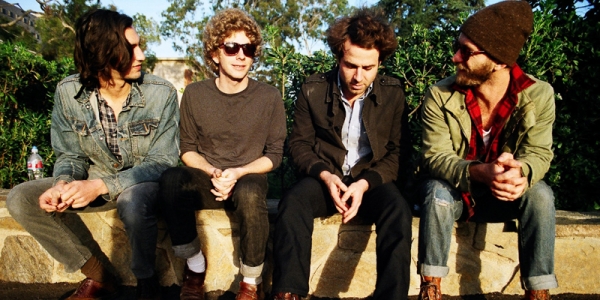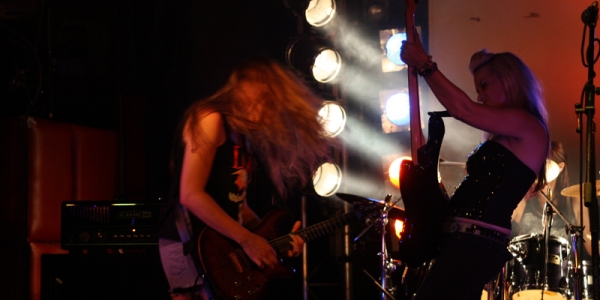Griffin Goldsmith, drummer for the melodic, ’60s inspired rock outfit Dawes answers the phone from his Los Angeles home sounding affable and relaxed. Despite a barrage of critical accolades, Dawes have kept a level head since their 2008 inception and the release of their lauded 2009 debut full-length, North Hills. Their music is chalk full of a vibe that harkens back to the days when Crosby, Stills Nash and Young retained (rightful) cultural importance. Their music isn’t perfect, but as Goldsmith opens up about how they’ve spent the last year, it’s clear that Dawes is still figuring things out.
“We’ve been on tour for the better part of four years. We’re extremely lucky. I think last year we played something like 265 shows. But it really pays off; we’re a much better band because of it.”
It’s the notion of being a band in the purist sense that keeps the motor running. Perhaps it was an early opportunity to act as a backing band for Robbie Robertson in support of his recent release, How To Become Clairvoyant that instilled in Dawes a sense of togetherness that has yet to fade away.
“That definitely makes you rise to the occasion,” he says of playing with Robertson. “He’s an example of someone doing things for the right reason. He could’ve had any session players that he wanted, but instead he chose a band. And it felt more cohesive than it would were it just a bunch of guys. It’s cool to know that he’s still familiar with it.”
Another act which falls in the same vein as Dawes are psych-rockers My Morning Jacket, who asked Dawes to open for them on their upcoming run of Australian dates. When asked if the band can hope to learn anything from My Morning Jacket as they did from Robertson, Goldsmith speaks with palpable reverence towards the band and their approach.
“I know all of them personally. As far as their career as a band, it’s ideal, especially for a band like us. It’s never going to be the way it is for a lot of other bands, especially here in Los Angeles, where they have that one breakout song and they’re playing to huge places. But instead, there are bands that’ve had a slow progression based on the quality of the music. And My Morning Jacket are one of those bands. They keep going back to the same cities, playing again and again, and they haven’t sacrificed any of their artistic integrity. They’re doing things for the right reasons, and I hope we are too.”
Certainly, as their impressive recent string of dates will act as a testament to, Dawes are doing things for the right reason. Calling them “Old school” isn’t appropriate because their sounds is a retro one, but because they are students of the school of thought that it consistent touring is what molds a band’s identity.
“Undoubtedly,” he says, when asked if the tunes from Nothing Is Wrong, they latest release, have grown after being played night after night. “With Nothing Is Wrong, which is also something we hope to do with this next batch of songs is to play them live before recording them. The songs don’t really have a chance to breathe until you’re out playing them live. They take on a whole new identity.”
The importance of playing live is not simply delineated for a live setting; Dawes are keen to cut their chops adhering to a similar approach in a place that is normally reserved for the perfectionists: the recording studio.
Recording live off the floor, Dawes have nearly the mastered the art of sounding like a band in their prime. All the while, not worrying too much about it at all.
“It’s actually the only thing that’s ever really worked for us,” Goldsmith says of recording live off the floor. “We’ve recorded in a separate booths, separated by these panes of glass. And it’s just not what we’re after. We get our best performances out when we’re doing things straight to tape. You know that you can’t overdub a drum part or a bass part. And it’s not to say that you can’t get a great sound out of Pro Tools, it’s just that you can end up using it as a crutch. The idea of being in a studio and gathering around the computer, it takes something away from the whole thing. You can’t visualize the record when you’re doing things with Pro Tools. Trying to make things perfect, you’re not always going to get the best sound.”
BY JOSHUA KLOKE







